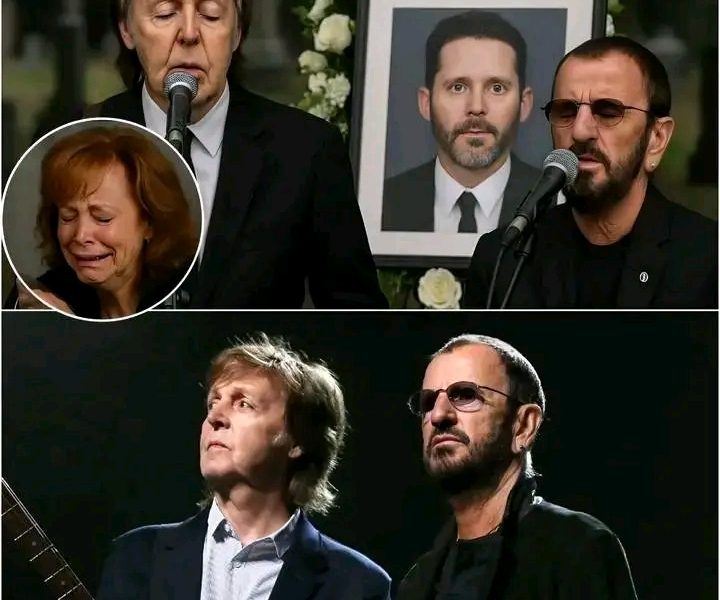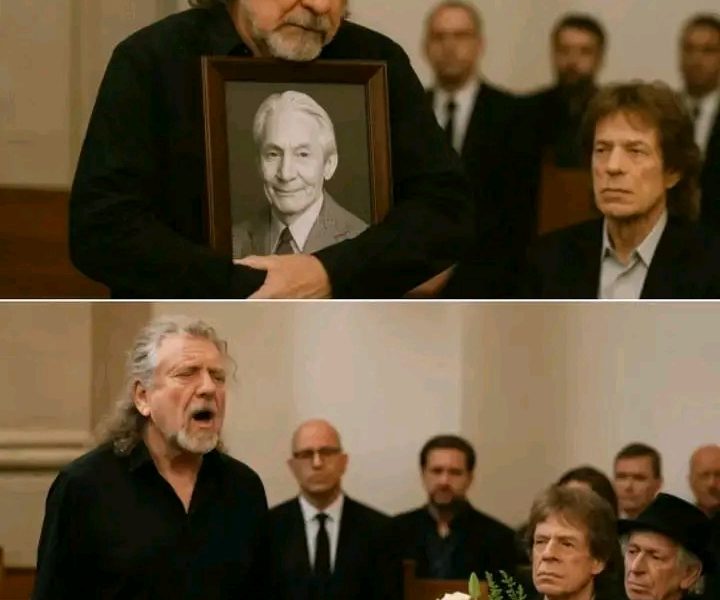Robert Plant’s enduring brilliance lies in his quiet defiance of what a rock legend is expected to be. While others freeze themselves in time, he’s embraced change as a form of creative liberation. His music has evolved from explosive declarations to introspective revelations, revealing a man less concerned with conquering stages and more drawn to exploring souls—including his own. There’s a spiritual thread that runs through his work, woven from folklore, blues, mysticism, and global sounds, each stitched together with a deep respect for where the music comes from and where it can go. His voice, aged yet ageless, now feels like an instrument of memory and presence, capable of conjuring longing, love, and loss in a single phrase. He no longer seeks to overwhelm his audience; he invites them in, gently, with wisdom hard-won. Robert Plant teaches us that true greatness is not about holding on—it’s about letting go, and in doing so, finding something even more profound…
Robert Plant’s brilliance doesn’t roar anymore—it hums, whispers, and breathes. Once the golden god of rock ‘n’ roll, he now walks a quieter path, one carved not from ego but from introspection, curiosity, and respect for the ever-changing nature of music and life. What makes Plant’s legacy so enduring is not just his extraordinary past with Led Zeppelin, but the way he’s refused to let that past define or confine him.
In a world where aging rock stars often become monuments to themselves, Plant has chosen reinvention over replication. While many of his peers tour endlessly on the fumes of former glory, he has embraced change as a kind of creative salvation. He has said no to countless lucrative Zeppelin reunions—not out of disdain, but because he understands that what was magic then cannot be manufactured now. For him, time isn’t an enemy; it’s an ally, shaping his music into something richer, deeper, and more honest.
Plant’s post-Zeppelin journey has been marked by constant exploration. His solo career is a patchwork of sounds: the stark beauty of Americana, the haunting textures of Middle Eastern rhythms, the grounded pulse of blues, and the ethereal reach of folk. Albums like Raising Sand (with Alison Krauss) and Lullaby and… The Ceaseless Roar show a man less concerned with being loud and more attuned to being true. In every collaboration, he listens more than he leads, channeling something ancient and spiritual, yet never stagnant.
There’s a reverence in his work—for culture, for history, for the unknown. Whether he’s singing Appalachian ballads or Moroccan folk songs, Plant approaches music not as a conqueror but as a guest. This humility has allowed him to transcend the limits of genre and geography. He’s not just creating songs—he’s connecting stories, people, and traditions. The mysticism that once swirled through Zeppelin’s lyrics has matured into a spiritual wisdom, grounded not in fantasy but in lived experience and emotional truth.
His voice, too, has evolved. Gone is the shrieking banshee of “Whole Lotta Love”; in its place is something earthier and more human. Now, his vocals carry the weight of memory—the longing of time passed, the ache of love lost, the serenity of acceptance. It’s a voice that doesn’t demand your attention but draws you in with its honesty. In every phrase, there’s an invitation to feel something real.
Robert Plant’s greatest act of rebellion has been his refusal to become a relic. Instead, he continues to grow, to search, to surrender. He teaches us that greatness isn’t about eternal youth or nostalgic revival—it’s about the courage to change, the grace to age, and the wisdom to let go. In releasing the past, he hasn’t diminished his legend; he’s deepened it. And in doing so, he shows us that the truest power in music—and perhaps in life—isn’t in holding on. It’s in moving forward, wide-eyed and unafraid, into the unknown.

